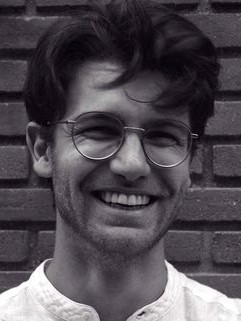Orazio Scarlatella

Dr Orazio Scarlatella
EPSRC/SFTC Stephen Hawking Fellowship Investigator
Postdoc in Prof Cooper's group
Office: C3.066
Email: os444 @ cam.ac.uk
TCM Group, Cavendish Laboratory
Ray Dolby Centre,
JJ Thomson Avenue,
Cambridge, CB3 0US UK.

Research
I am interested in quantum many-body systems under non-equilibrium conditions and open quantum systems.
My research has so far focused on
- understanding phases and phase transitions in the stationary states of driven-dissipative systems
- investigating the effects of quantum correlations in these systems, especially using a Dynamical Mean Field Theory approach
- the dynamics of open quantum systems and quantum impurity models
Other research interests include the investigation of topological properties in non-equilibrium conditions and light-matter systems.

In Plain English
Quantum physics is fascinating because it can result in highly counterintuitive behaviour, defeating our expectations from everyday life experience. More than that, when several quantum particles interact with one another, they can behave in a “collective” way that can defeat the expectations of even the most experienced quantum physicist, such as for example in superconductors or topologically ordered states.
Unfortunately, quantum effects are very fragile and usually can be observed in systems that are highly isolated from the rest of the world, as merely trying to look at what the system is doing can spoil its quantum behaviour. It is nevertheless possible to act on a quantum system in a controlled way, such that its behaviour remains quantum, but it changes drastically from it was at equilibrium. This is for example what we need to do to build and operate technologies relying on quantum phenomena. In those non-equilibrium conditions, collective effects can also arise.
In my research I focus on understanding quantum phenomena arising in such systems of many particles far from equilibrium. This is an exciting and lively area of research, with lots of experimental progress and with room for both fundamental discoveries as well as for potential technological applications.
Featured Publications
For a list of my publications, see my ArXiv, my Zotero profile, or my Google Scholar profile.(Photo by Amélie Churin)